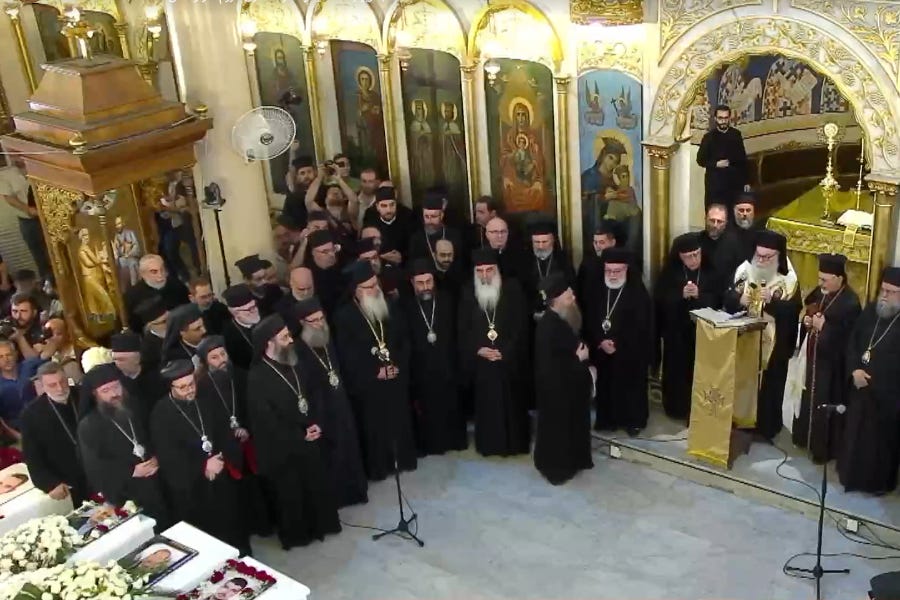What a church attack means for Syria’s Christians
Who are Syria’s Christians? Who carried out the attack and why? And what’s likely to happen next?
Greek Orthodox Patriarch John X presided Tuesday at a funeral service for victims of a suicide bomb attack at a church in the Syrian capital, Damascus.

